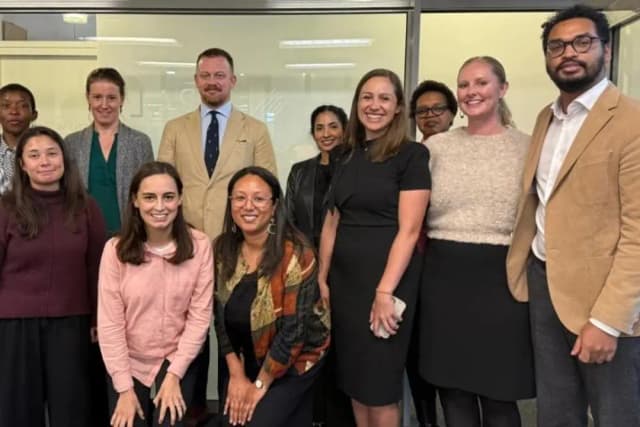A £2.75 million (US$3.7 million) initiative aimed at promoting evidence-based and socially responsible artificial intelligence (AI) solutions across Africa and Asia has been launched.
The AI Evidence Alliance for Social Impact (AEASI), a joint effort between Community Jameel, the Abdul Latif Jameel Poverty Action Lab (J-PAL), the UK’s Foreign, Commonwealth & Development Office (FCDO), Canada’s International Development Research Centre (IDRC), and IDinsight, seeks to bridge the gap between AI innovation and its real-world impact.
Part of a wider US$7.5 million collaboration with Google.org, AEASI was unveiled at the AI for Africa Conference in Cape Town, hosted by South Africa’s G20 presidency alongside the African Union and UNESCO.
The alliance will fund and guide research into how AI affects communities, focusing on both its social benefits and potential harms.
“AI has the power to fuel growth, build trust and transform lives, and every country should share in that,” said Kanishka Narayan, the UK’s minister for AI and Online Safety.
“That’s why we’re backing African-led innovation that puts people first, tackles real-world challenges, and builds global resilience.”
Driving AI for Development, Not Disruption
AEASI’s central goal is to ensure AI technology works for everyone, especially those in low- and middle-income countries often left behind in global tech advancements.
By focusing on data-backed evaluations, the alliance plans to identify where AI can create tangible benefits, such as improving healthcare delivery, enhancing education, strengthening agricultural systems, and advancing public governance.
The programme also aims to mitigate risks linked to bias, privacy, and inequality that often accompany AI deployment in emerging economies.
A Collaboration Rooted in Evidence and Inclusion
The alliance partners combine strong technical, policy, and research capabilities. J-PAL, known globally for its rigorous impact evaluations, will lead research design and evidence synthesis.
Community Jameel, a philanthropy that focuses on science and technology for social good, will help coordinate partnerships. FCDO and IDRC bring in government-backed development expertise, while IDinsight will focus on data-driven impact assessments.
Together, they aim to generate robust evidence on what works, and what doesn’t, when AI is introduced in social systems.
Empowering Local Innovation Across Continents
A key feature of AEASI is its support for locally led research in Africa and Asia, giving regional academics, civil society, and innovators a greater voice in shaping the global AI agenda.
By funding research teams in Nairobi, Accra, New Delhi, and other major hubs, AEASI seeks to create a sustainable ecosystem for ethical AI experimentation.
“By working with countries like South Africa, we’re making AI safer, fairer, and more inclusive, and helping communities shape the future on their terms,” Narayan added, underscoring the UK’s commitment to regional capacity-building.
Funding Facts and the Road Ahead
The £2.75 million investment forms part of a broader US$7.5 million AI impact evaluation fund led by Google.org, aimed at scaling high-impact AI interventions.
The alliance will begin by commissioning cross-country studies later this year, focusing on sectors where AI can deliver measurable social impact.
With growing global concern about AI’s ethics and equity, AEASI represents one of the most coordinated efforts yet to ensure that the technology’s benefits are both scientifically validated and socially inclusive.
Why this matters
This initiative matters because it tackles one of the most pressing challenges of the digital age, ensuring that artificial intelligence serves humanity equitably rather than deepening global divides.
By focusing on Africa and Asia, regions often excluded from setting the global AI agenda, the AI Evidence Alliance for Social Impact (AEASI) seeks to democratize how AI is designed, tested, and deployed.
Its emphasis on evidence-based research and locally led innovation could help governments and communities make smarter, fairer decisions about adopting AI tools in sectors like healthcare, education, and governance.
Moreover, by addressing issues such as bias, data ownership, and ethical governance, AEASI has the potential to create a more balanced technological future where developing nations are not passive consumers of Western-built systems but active co-creators shaping how AI impacts their societies.
Talking Point
The launch of the AI Evidence Alliance for Social Impact (AEASI) marks a major step toward more inclusive and evidence-driven AI development in Africa and Asia, but it also exposes critical tensions around power, ethics, and local ownership.
While the £2.75 million initiative aims to empower local innovation and make AI safer and fairer, the heavy involvement of Western institutions raises concerns about whether decision-making will truly be shared or remain top-down.
Its promise to base deployment on solid research is significant, yet its impact will depend on whether evidence is translated into concrete policies and governance frameworks, not just academic outputs.
Key issues such as data sovereignty, algorithmic autonomy, and genuine capacity-building will determine whether the alliance can move beyond symbolic participation to real partnership.
If successful, however, AEASI could help set a new global standard for responsible AI collaboration; and if not, it risks replicating existing inequalities in the tech ecosystem.






